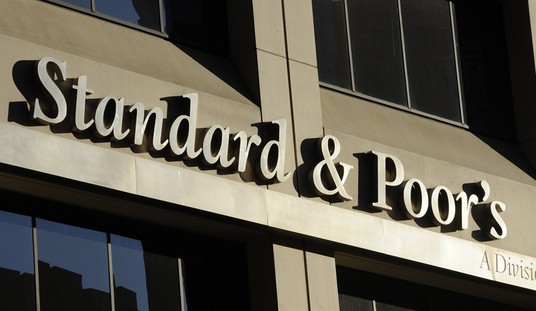Update, 8:26 pm ET: No cordon sanitaire, but a “strong travel advisory” instead:
https://twitter.com/realDonaldTrump/status/1244056559577071616
That might be a warning, along the lines of nice freedom of movement you got there — don’t abuse it. It also might be a little shot across Cuomo’s bow, although given his difficulties in imposing the shelter-in-place policies in New York City, Cuomo might secretly welcome this public scolding.
Original post follows …
Can Donald Trump shut down — or at least seriously restrict — interstate traffic in a national emergency? We may be about to find out. Trump announced on Twitter that he might “quarantine” the “hot spots” of New York, New Jersey, and Connecticut to slow down any more spread of the coronavirus pandemic to other states:
https://twitter.com/realDonaldTrump/status/1243953994743103489
The president also mentioned it to reporters at the White House. If it happens, Trump said, it would only be for a short period of time:
President Donald Trump said Saturday that he had spoken with some governors and was considering some type of an enforceable quarantine to prevent people in New York and parts of New Jersey and Connecticut from traveling.
Trump told reporters at the White House that it would be for a “short period of time, if we do it at all.” He said he had spoken with Gov. Ron DeSantis, R-Fla., and Andrew Cuomo, D-N.Y., the country’s epicenter of the coronavirus pandemic.
Why would DeSantis be part of that conversation? Apparently, Florida is getting an influx of New Yorkers looking to escape the lockdown and wants Trump to do something about it:
Florida Gov. Ron DeSantis issued an executive order on Monday directing travelers from New York, New Jersey and Connecticut to self-isolate for that period, and said violations of the order would amount to a criminal offense. Rhode Island Gov. Gina Raimondo on Thursday issued a similar order. Mr. Trump said on Saturday he had spoken to Mr. DeSantis.
“They’re having problems down in Florida. A lot of New Yorkers going down,” Mr. Trump said.
What was Cuomo’s input on this possibility? Er, this is the first he’s hearing of it, Cuomo told reporters at his daily briefing. In fact, Cuomo isn’t even sure what that would mean:
“I don’t even know what that means,″ Cuomo said during a briefing in New York. “I don’t know how that could be legally enforceable, and from a medical point of view, I don’t know what you would be accomplishing. … I don’t like the sound of it.”
That seems a bit difficult to believe. Former Trump adviser-cum-Trump critic Tom Bossert publicly urged the president to impose a cordon sanitaire of New York City three days ago, which Cuomo has declined to do. Allahpundit called it “the Wuhan option” at the time; this could be called the Hubei option instead, both names arising from cordon sanitaire policies belatedly imposed by China. If Cuomo is unfamiliar with the concept, that’s on him, not on Trump.
This raises two questions. First, why speak about the possibility of a tri-state quarantine at all? Giving advance notice of it only increases the incentives to flee, making the problem worse. Look at what happened in Italy when the government offered advance notice of a lockdown after the COVID-19 cases started to escalate. The warning allowed for travel between areas of the country that may have accelerated the spread — and could be why Italy is experiencing a second spike in cases and deaths now. If a cordon sanitaire is required, impose it immediately.
Next question: can Trump really order such a quarantine? The Associated Press isn’t sure:
It isn’t clear whether the federal government has the power to impose such restrictions on states. Under the country’s constitutional system, states have the power and responsibility for maintaining public order and safety. The federal government is empowered under the law to take measures to prevent the spread of communicable diseases between states, but it’s not clear that means Trump can order state residents to stay put.
Even outside of an emergency, it’s likely that Trump has that authority. The Constitution gives the federal government the authority to regulate interstate commerce, and many of the roads used are within the federal highway system as well. After declaring an emergency based on a pandemic, it’s almost certain that the federal government can temporarily impose a quarantine to protect other states. That doesn’t mean Trump can order residents to “stay put” at home, but he can order that they do not cross state lines during the duration of the quarantine.
One has to believe, however, that that’s the only traffic that would get blocked. Distribution of food and essential goods would almost certainly continue, as would medical supplies and personnel. The only real issue is people leaving lockdown areas without being tested and potentially seeding COVID-19 in other communities. Until testing becomes so widespread that we’re checking the asymptomatic, this step might become necessary as cities and states reach “hot spot” status. New Orleans and Florida itself will likely be the next candidates for cordons sanitaires, whether they like it or not.
Finally, it’s tough to take complaints about emergency actions like this seriously when they come from the very same politicians who complain that Trump wasn’t being authoritarian enough. Cuomo and other governors have complained for days that Trump wasn’t taking control of the means of private-sector production, a step he finally belatedly took yesterday. Don’t be surprised when a president with emergency powers starts looking for other ways in which he can safeguard his standing with them.








Join the conversation as a VIP Member